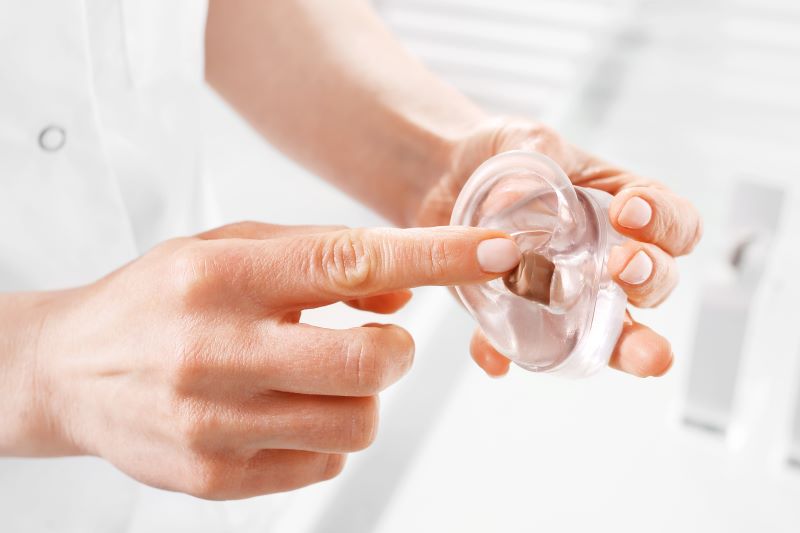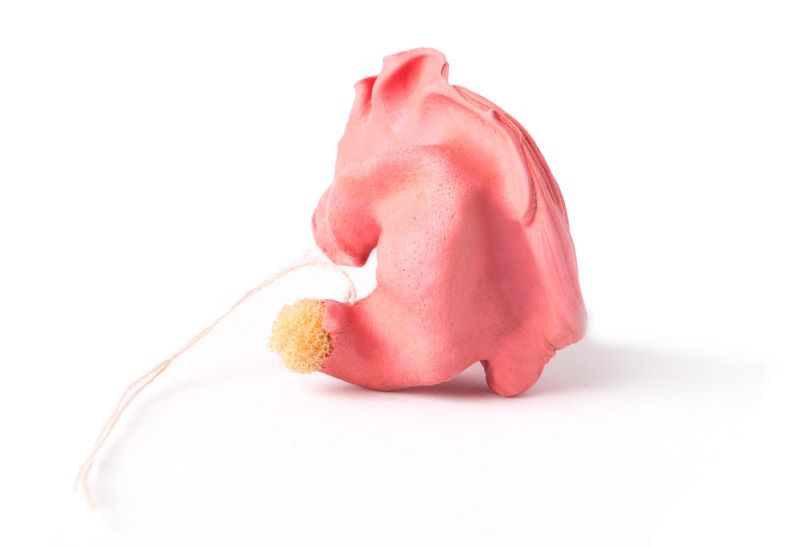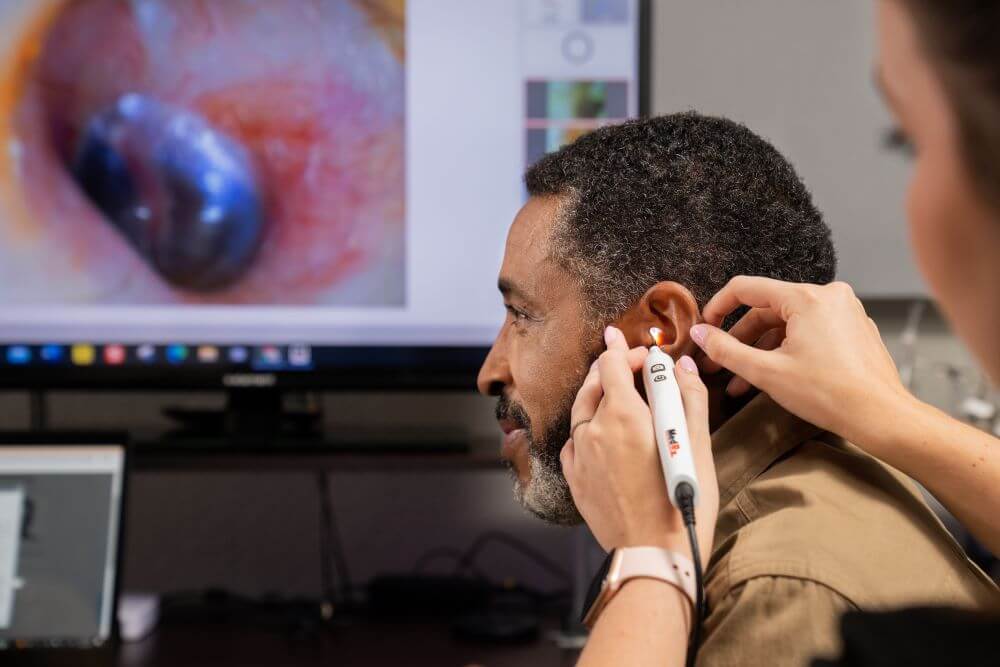|
www.HealthyHearing.com |
Hearing aids for small or narrow ear canalsFinding the right style and fit may take a few extra steps
Contributed by Emily Ostrowski, content manager, Healthy Hearing Key points:
A comfortable and correct fit is important when you get new hearing aids, but people with smaller or narrow ear canals may have a difficult time finding the right fit. Fortunately, a knowledgeable hearing care provider can offer guidance and suggest the best hearing aid styles. Let’s examine the challenges that smaller or narrow ear canals can pose as well as what hearing solutions might work best. Common hearing aid challenges when you have small ear canals
for people with smaller-than-average ear canals. Small ear canals can create several challenges when you wear hearing aids:
What are the best hearing aids for small ear canals?There is no one hearing aid brand that will work better than another. When it comes to hearing aid styles, Dr. Jill Bernstein, Au.D at Hearing Evaluation Services of Buffalo, Inc. - Amherst typically recommends one of two styles: Either a receiver-in-the-ear (RITE) with a custom earmold, or an in-the-canal (ITC) device. All the major hearing aid manufacturers offer a range of brands in these two styles. Receiver-in-the-ear with a custom earmold
soft putty into the ear that hardens. From this, custom-fit earmolds can be made for hearing aids. Instead of using a dome-style eartip that typically comes with RITE hearing aids, Bernstein uses a custom earmold. The earmold, which partly sits in the ear canal, contains a speaker, delivering sound. The mold is attached to the processor via a thin ear wire, which is discreet. To get a precise fit for the earmolds, an impression is made of a person's ear canal, using a putty material. For people with very small canals or ear canals with twists and turns, multiple impressions may be necessary to get a really good measurement. The impression is then sent to a lab at a hearing aid manufacturer who creates the earmold. Earmolds can be made of hard or soft material. For small ear canals, Bernstein prefers a harder material. “Different audiologists may have different opinions on this, but I personally find that acrylic is a better material to use with narrow or bending canals,” she said. To see what this option looks like, Dr. Hung Mai of Ample Hearing in Louisiana has put together a helpful case study, Finding a Good Fitting Earmold for the Tiniest Ear Canal. Custom in-the-canal hearing aidsIf you struggle with finger dexterity, Dr. Bernstein recommends custom in-the-canal hearing aids. ITC devices are typically easier to put in and take out, and some come with retention locks to stay in the ear with added security. As with custom earmolds, an impression of the ear is taken so the devices can be made to match the exact shape of your ear canals. Learn more: Hearing aid types and styles. Other treatment optionsIf you have small ear canals due to microtia, tumors, or any other physical blockage of the canal, you may have conductive hearing loss. If that’s the case, a bone-anchored hearing device may be the best option for you. These devices are surgically implanted and bypass the ear canal entirely. They treat hearing loss by transmitting sound vibrations from the skull bone to the inner ear. This would also be an appropriate option if you have single-sided hearing loss. 'Success will come' with patience—and the right providerFinding the right hearing aids when you have smaller ear canals may cause a bit of frustration. However, with patience and the right provider, you can find a solution. 
your hearing care provider determine the best hearing aids for you. When Dr. Bernstein meets a patient with small ear canals, she starts by explaining their unique ear anatomy and why it affects the fitting process. Sometimes, she uses a video otoscope to help them better understand the challenges while always reassuring them that the right solution is out there and encouraging patience. Next, she discusses the pros and cons of custom hearing aids versus over-the-ear (OTE) styles with custom earmolds. To check dexterity, she has patients try inserting an OTE dummy device. Once they’ve chosen the best option together, Dr. Bernstein schedules an extra 15–30 minutes during the fitting, to ensure that her patient feels confident and capable of inserting their new hearing aids on their own. “Many new users get frustrated after the second or third attempt to put in their hearing aid,” said Dr. Bernstein. “This is counterproductive to the process. As long as the audiologist and the hearing aid user are committed to working as a team, success will come.” Are small ear canals normal?Yes. Smaller-than-average ear canals are often just a normal anatomical variant and it’s not uncommon for audiologists to see patients who have them. Dr. Berstein estimates that she encounters patients with small or difficult shaped ear canals "about 10% of the time.” Health conditions linked to small ear canalsIn rarer cases, small ear canals can be caused by various medical conditions or procedures. For example, patients who have had a mastoidectomy may have smaller ear canals. A mastoidectomy is a surgery that removes tissue from the bone in the skull that is positioned just behind your ear. Other conditions that can cause small or narrow ear canals include:
Is surgery an option?If you have severe ear canal stenosis or have a growth in your ear that’s impacting the size of your ear canal, surgery may be necessary. However, if you just have smaller-than-average ear canals without an underlying medical condition, surgery is not necessary nor is it recommended. Find a hearing aid provider near youIf you or a loved one is struggling to find hearing aids that fit well, make an appointment with a local provider from our hearing directory and work together to find the right pair. Emily Ostrowski, content manager, Healthy Hearing
|
Featured clinics near me
Earzlink Hearing Care - Reynoldsburg
7668 Slate Ridge Blvd
Reynoldsburg, OH 43068

Find a clinic
We have more hearing clinic reviews than any other site!


 Emily is an experienced journalist and medical content writer based in Maine. Passionate about delivering enlightening and accurate content, she is committed to empowering people to make informed choices regarding their hearing health.
Emily is an experienced journalist and medical content writer based in Maine. Passionate about delivering enlightening and accurate content, she is committed to empowering people to make informed choices regarding their hearing health.